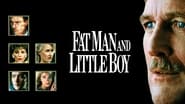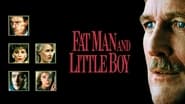NekoHomey
Purely Joyful Movie!
2freensel
I saw this movie before reading any reviews, and I thought it was very funny. I was very surprised to see the overwhelmingly negative reviews this film received from critics.
HottWwjdIam
There is just so much movie here. For some it may be too much. But in the same secretly sarcastic way most telemarketers say the phrase, the title of this one is particularly apt.
Lela
The tone of this movie is interesting -- the stakes are both dramatic and high, but it's balanced with a lot of fun, tongue and cheek dialogue.
indyman12345
Never have I seen a film so boring, so downplayed, so exposition-laden, so god-awfully slow, it gives the same effect of rubbing sandpaper on your eyes. The only character worth a damn is Paul Newman's character, not only because Paul Newman is a damn good actor, but he had some generally funny scenes in this flick. Dwight Schultz on the other hand, is more or less like a dirty old rock you find on the side of the road. When he yells his lines, it's like sticking a grasshopper in your ear; unpleasant and obnoxious. The next problems with casting come down to John Cusack and Laura Dern. As for John Cusack, he just adds to the awkward blandness of the film, and it feels like a Matthew Broderick-esque performance, and you don't really feel anything for or from him, which definitely comes in to play in the second and third act. For Laura Dern, however, I feel bad that she literally only got a minimal amount of screen time, and had an even blander character than Dwight Schultz. It's a shame, because we know Laura Dern can act, and the fact that they don't really do anything with her makes it all the more disappointing.But away from the characters. This is the story of the Manhatten Project, the infamous nuclear bomb experiments. you'd think a movie about bombs would have some decent explosions in it, right? Come on, I know your inner man-child lust for destruction is begging for some fiery mushrooms in the sky! And what do we get? A couple little poofs and a nuclear explosion we barely even see. So, not only is the writing your average sandpapery boringness of a war-movie-that-doesn't-actually-have- very-much-war-in-it, not only does it have some typically boring actors besides Laura Dern and Paul Newman, and not only is this film blander than bread, it doesn't have any good explosions in it! By God, if I'm gonna watch a movie about bombs, it better show some good explosions!In conclusion, yes, this movie really should be avoided. There are definitely other movies you could watch on this subject. Hell, you could just watch a documentary on it and get the same information. So, don't bother watching it because it would be a waste of a good couple of hours, a couple hours where you could watch some actually good war movies based on WWII. Like Full Metal Jacket or Saving Private Ryan.
Maziun
Roland Joffe , author of epic and beautiful "The Killing fields" and "The Mission" , tries to ask some important questions about morality and responsibility in this movie . Unfortunately , "Fat man and little boy " is just a shadow of mentioned movies . Yet it's still a movie worth watching.The movie feels like a TV movie . Joffe doesn't have a chance to impress us with beautiful views (like in his best movies) , because most of the action happens in laboratory or office. "FMALB" is a character driven story and very dialogue heavy . That's another problem . The movie can't surprise you because you already know how it's going to happen . "FMALB" wants and tries to be objective about it's heroes – Oppenhaimer and General Groves . Yet in my opinion they end as one dimensional characters : Groves is cold hearted soldier that wants the bomb to satisfy his pride . He believes that violence solves problems and that his country will be save thanks to the bomb. Oppenhaimer is a man obsessed with his work that slowly sacrifices everything to achieve his goal. There is important symbolic scene in the bathroom – Oppenhaimer washes his hands. In the end movie seems satisfied with retelling the events . It shows us the motivations of the characters , but never really is able to make a comment to their actions . The important questions seems to hang in the air , but are never asked. The movie sends pro-life and anti-war message (the scene with pigeons) , but I was expecting more drama , more unnerving questions – Is it moral to build a bomb ? Does end justify the means ? Is it good to sacrifice personal happiness for greater good ? Dwight Schultz as Oppenhaimer and Paul Newman as General Groves are good in their roles , despite that they don't have chance to show their acting abilities fully . John Cusack is nice as Michael Merrwin . I believe that in some way he symbolizes us – the humanity , the common man. He stands between Oppenhaimer and Groves . He knows what love is and has doubts about the whole project. "Our instinct – tells us to kill or to save life ? I believe that if we had choice we would choose life". Those are important words coming from Cusack's character . "Fat man and Little boy" shows us people who created history and who didn't really understood the consequences of their actions. They were too wrapped up in their own obsessions. In the end they forgot what it means to be a human and it cost life of many people. I give it 5/10.
MARIO GAUCI
An interesting – one might say, inevitable – depiction of the birth of the Nuclear age (I had watched the very first treatment of the subject, THE BEGINNING OR THE END [1947], some years back), with the title a reference to the nicknames given the bombs dropped on Hiroshima and Nagasaki and which hastened the end of WWII. For director Joffe', it was a follow-up to two impressive movies, both similarly involved in eliciting outraged public response to man's inhumanity to his fellow man – THE KILLING FIELDS (1984) and THE MISSION (1986) – which, like the film under review, was scored by Ennio Morricone; this, however, puts the culprits rather than their victims at center-stage – while taking care to present almost every possible angle in the issue. Having said that, the film never quite moves one like it should and is awfully slow-moving to boot: at one point, the scientist ("The A-Team"'s Dwight Schulz[!], though surprisingly convincing) commissioned to work out the device tells his collaborator (John Cusack who, in a harrowing sequence, eventually becomes the first victim of the A-bomb) that they are not responsible for how their handiwork is ultimately put to use…which is utter crap if you ask me! As if to suggest that the people concerned lost something of their own along the way, we are treated to glimpses into both their domestic lives (Cusack falls for a nurse at the Los Alamos base, Laura Dern, whereas Schulz carries on relationships with two women simultaneously, wife Bonnie Bedelia and mistress Natasha Richardson – with the suicide of the latter character coming across just as futile as the recent tragic death of the actress playing her!). For the record, I acquired the film late last year around the time of its leading man's own passing, Paul Newman; he appears as the General who oversees the invention and building of the bombs and, in that respect, was not afraid to tackle a role which was obviously unsympathetic (the last shot, in which he raises his closed fist in victory to Schulz – being cheered by the crowds after the result of the bombings – but retracting in shame after recognizing the scientist's broken spirit, is telling). By the way, I have to wonder whether the film was originally intended to be longer: the cast list at the end gives reasonable prominence to the name of 1970s character actor Ed Lauter, yet he is given no more than one fleeting shot in the released version!
theowinthrop
I find it remarkable that so little was actually done with the story of the a-bomb and it's development for decades after the Manhattan Project was completed. My suspicion is that this was due to serious fears in the movie and entertainment industries (in the 1950s through the 1970s) with "McCarthyism" and related national security phobias (including the Hollywood blacklist). There was one film in the 1950s (with Robert Taylor) about Col. Paul Tibbits who flew the Enola Gay in the Hiroshima bombing, but otherwise nothing else. One could glance at a side issue tragedy (the sinking of the U.S.S. Indianapolis soon after the delivery of the bombs to Tinian) in Robert Shaw's description of the shark attacks on the survivors in JAWS. But the actual trials and tribulations of Groves, Oppenheimer, and their team was not considered film-able.And then in 1989 two films appeared. I have reviewed one already (DAY ONE) which I feel is the better of the two in discussing the lengthy technical and emotional and political problems in the Manhattan Project. The acting of Brian Dennehy as General Groves and David Strahairn as Oppenheimer was first rate and neatly balanced. Small side vignettes concerning the anti-bomb crusade of Szilard (Michael Tucker) help fill out the story well.That's the problem here. Paul Newman is a great actor (as is Mr. Dennehy) but Newman approached Groves in a different way that while not dreadful is lesser than Dennehy's intelligent but soft spoken military brass. Newman seems too popped eyed about the possibility of the weapon as the biggest stick to confront the other boys in the after-school yard with. Yes it certainly was, but the real Groves would have been more like Dennehy keeping his mind not on that great toy of the future but on the business of creating that great toy. Dwight Schultz's performance as Oppeheimer helps maintain the film's basically interesting and good production, aided by Bonnie Bedelia as his wife. But the most interesting aspect of this film is in the upgrading of the two tragedies of Daghlian and Slotin, in particular the latter, in the character of John Cusack's Merriman. Inevitably in all technological advances people are killed. It's just that these two tragedies (on top of the tens of thousands that were lost in Hiroshima and Nagasaki) brought home the dangers of the new unleashed power even in a so-called peaceful, controlled experiment. The two tragedies (particularly Louis Slotin's slow, agonizing death by radiation poisoning) showed how much care was needed in using atomic power - and how the barest of chances could still cause disaster. The only really different thing I saw in Cusack's performance (and the script) and the actual incident with Slotin was that Slotin actually took some time after the accident to figure out where all his fellow research scientists were when they were hit by the radiation from the accident (he was able to show that only he got the full effect of the accidental blast, so that only relatively minor treatment would be needed by the others). Perhaps the full story of Slotin's actions was too technical for the screen, but given the humongous pain he suffered in the end that he took time off to think of the others shows what a first rate person he really was.





